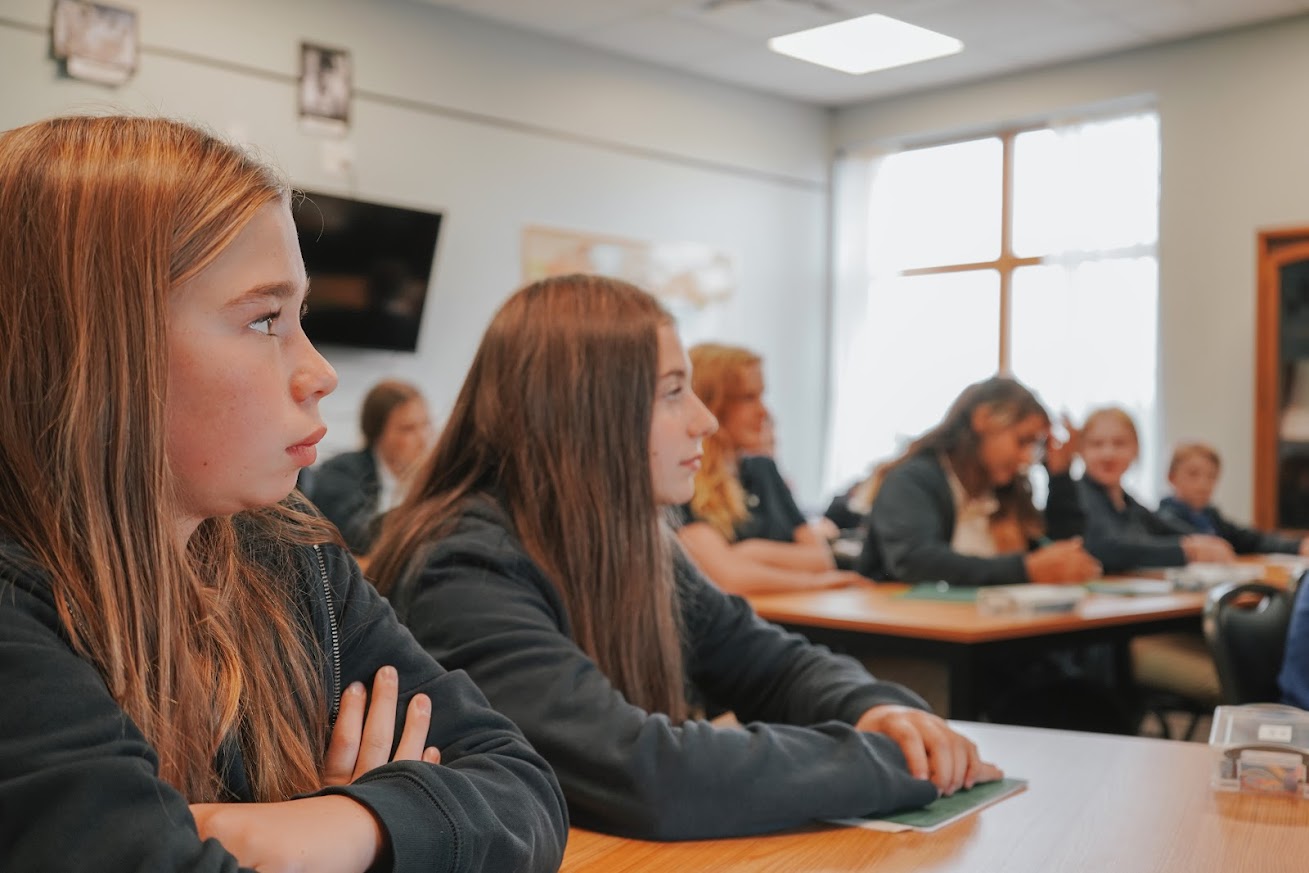Attention
The Charlotte Mason education philosophy.
Attention
The Charlotte Mason education philosophy.
What we have perhaps failed to discover hitherto is the immense hunger for knowledge (curiosity) existing in everyone and the immeasurable power of attention with which everyone is endowed…
— CHARLOTTE M. MASON —
What we have perhaps failed to discover hitherto is the immense hunger for knowledge (curiosity) existing in everyone and the immeasurable power of attention with which everyone is endowed...
CHARLOTTE M. MASON

Discover more — A living education
The Charlotte Mason Philosophy
The primary work of both student and teacher is to attend. It is the task that precedes all others; attention is a learned skill. Students learn to direct attention towards literature, science, mathematics, history, and geography; attend to insights received from texts and from one another; attend to the practices of thinking, speaking, writing, seeing, drawing, singing, playing, and relating. Attention increases as students form the habits of directing and redirecting attention throughout the learning process.
Students everywhere attend to something. The question is to whom or to what are they attending? Is it a fleeting thought; self-consciousness; an interest or person outside of school, or a beautifully written text, algorithm, or discovery in science or history?
In a typical classroom, students’ attention is often directed to an outcome: “Do I have to know this for the test?” Students are trained to value knowledge and information chiefly as they pertain to quizzes, tests and exams.
Ambleside students, however, learn to direct and sustain attention on the “text” — whether the text is a well-written book, a musical composition, an algorithm, a great master’s painting, a nature specimen, or instruction in a particular skill — to perform what Mason described as the act of knowing.
Just as the body hungers for nourishment, so does the mind hunger for knowledge. Ambleside students learn to attend to a text, to narrate what they saw, heard, or read and tell back what was known. During this process, minds stir and grow and seize ideas from teachers and fellow students. Every Ambleside teacher strives to provide students with food for the mind.
As they encounter and feed on the many texts around them, Ambleside students become:
- Consistent in habits of directing attention, learning, and working with effort
- Engaged in understanding and expressing substantial ideas
- Proficient in reading rich text, writing essays, and speaking publicly
- Eager to encounter great works of literature, science, music, and art
- Proficient in conversing and reading in at least one foreign language
- Adept at relating to themselves and the challenges they face with maturity
- Quick to care for, forgive, and support one another in times of ease and distress
- Engaged in a life devoted to God

At Ambleside, we understand that the primary work of both student and teacher is to attend. It is the task that precedes all others. Attend to literature, science, mathematics, history, and geography; attend to insights received from texts and from one another; attend to the practices of thinking, speaking, writing, seeing, drawing, singing, playing, and relating.
Moment-by moment, hour by hour, day by day, students and teachers attend and thereby perform spontaneous “acts of knowing.”
Students everywhere attend to something. The question is to whom or to what do they attend? Is it a fleeting thought; self-consciousness; an interest or person outside of school?
In a typical classroom, students’ attention is often directed to a final outcome: “Do I have to know this for the test?” Students are trained to value knowledge and ideas chiefly because they pertain to examinations.
Ambleside students, however, learn to direct their attention to the “text”—whether the text is a well-written book, a musical composition, an algorithm, a great master’s painting, a nature specimen, or instruction in a special skill—and to the acts of knowing.
Just as the body hungers for nutrition, so does a student’s mind. Ambleside students learn to study a text, to narrate what they saw, heard, or read. During this process, their minds stir and grow as they seize ideas independently, or receive them from teachers or fellow students. Every Ambleside teacher strives to provide students with food for their minds, even as they train students to direct their attention to texts and to acts of knowing.
As they encounter and feed on the many texts around them, Ambleside students become:
● Consistent in habits of directing attention, learning, and working with effort.
● Engaged in understanding and expressing substantial ideas.
● Proficient in reading rich text, writing essays, and speaking publicly.
● Eager to encounter great works of literature, science, music, and art.
● Proficient in conversing and reading in at least one foreign language.
● Mature in relating to themselves and to the challenges they face.
● Mature in relating to, caring for, forgiving, and supporting one another.
● Engaged in a life of devotion to God.
Discover more — A living education
The Charlotte Mason Philosophy
